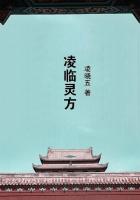Two days before the Passover, when Christ had for the last time departed from the temple, after denouncing the hypocrisy of the Jewish rulers, He again went out with His disciples to the Mount of Olives and seated Himself with them upon the grassy slope overlooking the city. Once more He gazed upon its walls, its towers, and its palaces. Once more He beheld the temple in its dazzling splendor, a diadem of beauty crowning the sacred mount.
A thousand years before, the psalmist had magnified God's favor to Israel in ****** her holy house His dwelling place: "In Salem also is His tabernacle, and His dwelling place in Zion." He "chose the tribe of Judah, the Mount Zion which He loved. And He built His sanctuary like high palaces." Psalms 76:2; 78:68, 69. The first temple had been erected during the most prosperous period of Israel's history. Vast stores of treasure for this purpose had been collected by King David, and the plans for its construction were made by divine inspiration. 1 Chronicles 28:12, 19. Solomon, the wisest of Israel's monarchs, had completed the work. This temple was the most magnificent building which the world ever saw. Yet the Lord had declared by the prophet Haggai, concerning the second temple: "The glory of this latter house shall be greater than of the former." "I will shake all nations, and the Desire of all nations shall come: and I will fill this house with glory, saith the Lord of hosts." Haggai 2:9, 7.
After the destruction of the temple by Nebuchadnezzar it was rebuilt about five hundred years before the birth of Christ by a people who from a lifelong captivity had returned to a wasted and almost deserted country.
There were then among them aged men who had seen the glory of Solomon's temple, and who wept at the foundation of the new building, that it must be so inferior to the former. The feeling that prevailed is forcibly described by the prophet: "Who is left among you that saw this house in her first glory? and how do ye see it now? is it not in your eyes in comparison of it as nothing?" Haggai 2:3;Ezra 3:12. Then was given the promise that the glory of this latter house should be greater than that of the former.
But the second temple had not equaled the first in magnificence; nor was it hallowed by those visible tokens of the divine presence which pertained to the first temple. There was no manifestation of supernatural power to mark its dedication. No cloud of glory was seen to fill the newly erected sanctuary. No fire from heaven descended to consume the sacrifice upon its altar. The Shekinah no longer abode between the cherubim in the most holy place; the ark, the mercy seat, and the tables of the testimony were not to be found therein. No voice sounded from heaven to make known to the inquiring priest the will of Jehovah.
For centuries the Jews had vainly endeavored to show wherein the promise of God given by Haggai had been fulfilled; yet pride and unbelief blinded their minds to the true meaning of the prophet's words. The second temple was not honored with the cloud of Jehovah's glory, but with the living presence of One in whom dwelt the fullness of the Godhead bodily--who was God Himself manifest in the flesh. The "Desire of all nations" had indeed come to His temple when the Man of Nazareth taught and healed in the sacred courts. In the presence of Christ, and in this only, did the second temple exceed the first in glory. But Israel had put from her the proffered Gift of heaven.
With the humble Teacher who had that day passed out from its golden gate, the glory had forever departed from the temple. Already were the Saviour's words fulfilled: "Your house is left unto you desolate." Matthew 23:38.
The disciples had been filled with awe and wonder at Christ's prediction of the overthrow of the temple, and they desired to understand more fully the meaning of His words. Wealth, labor, and architectural skill had for more than forty years been freely expended to enhance its splendors. Herod the Great had lavished upon it both Roman wealth and Jewish treasure, and even the emperor of the world had enriched it with his gifts. Massive blocks of white marble, of almost fabulous size, forwarded from Rome for this purpose, formed a part of its structure; and to these the disciples had called the attention of their Master, saying: "See what manner of stones and what buildings are here!" Mark 13:1.
To these words, Jesus made the solemn and startling reply: "Verily I say unto you, There shall not be left here one stone upon another, that shall not be thrown down." Matthew 24:2.
With the overthrow of Jerusalem the disciples associated the events of Christ's personal coming in temporal glory to take the throne of universal empire, to punish the impenitent Jews, and to break from off the nation the Roman yoke. The Lord had told them that He would come the second time. Hence at the mention of judgments upon Jerusalem, their minds reverted to that coming; and as they were gathered about the Saviour upon the Mount of Olives, they asked: "When shall these things be? and what shall be the sign of Thy coming, and of the end of the world?" Verse 3.
The future was mercifully veiled from the disciples. Had they at that time fully comprehend the two awful facts-- the Redeemer's sufferings and death, and the destruction of their city and temple--they would have been overwhelmed with horror. Christ presented before them an outline of the prominent events to take place before the close of time. His words were not then fully understood; but their meaning was to be unfolded as His people should need the instruction therein given. The prophecy which He uttered was twofold in its meaning; while foreshadowing the destruction of Jerusalem, it prefigured also the terrors of the last great day.
Jesus declared to the listening disciples the judgments that were to fall upon apostate Israel, and especially the retributive vengeance that would come upon them for their rejection and crucifixion of the Messiah.















